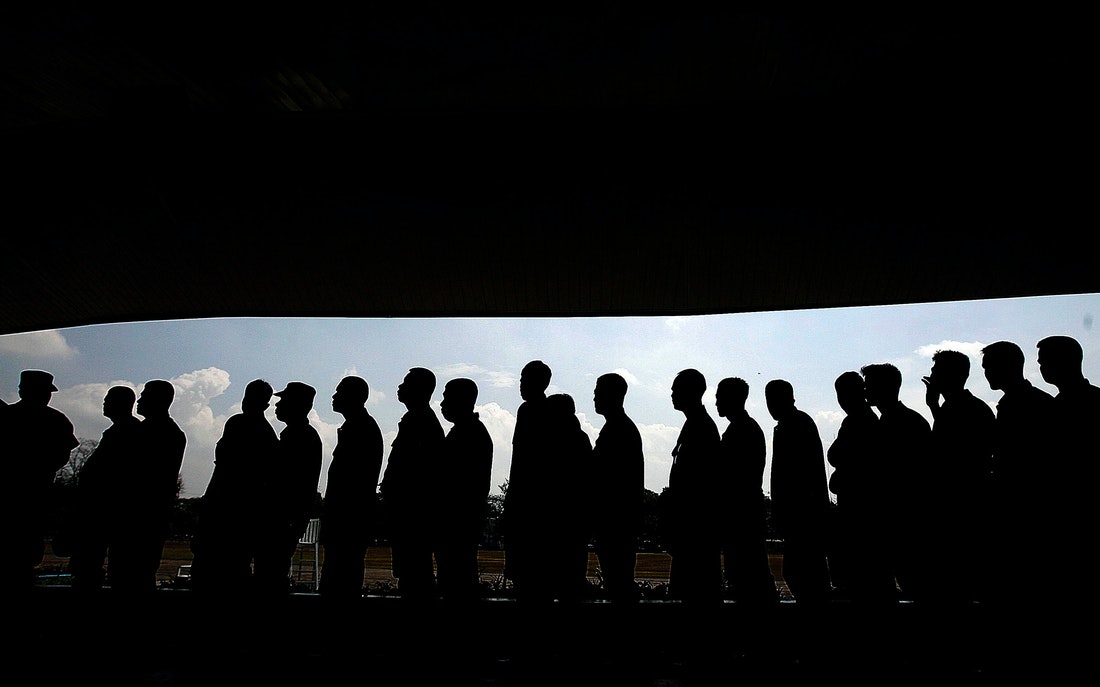Queues and Poor Customer Interface
A debate on whether urbanization and similarly privatization are good or bad is nothing new. However, there cannot be any questions raised on the indispensability of both. Urban centres and private enterprises are the engines of the growth of an economy. In India urbanization and growth of the private enterprise has mostly not happened by design but as a natural evolution of an economy. Delhi for example is one of the best-managed urban centres of India, but still leaves a lot to be desired. While larger structural anomalies are something the people may agree to live with, it is the everyday irritants, which we do expect to be removed – because resolving them is not a big deal, anyway. And while they are there, they add a lot of stress to our lives. It is in this context that a need was felt for understanding some of these issues, which could lead to action to resolve them.
PRAHAR took a radically different approach, by soliciting views from people across Delhi.
The campaign conducted 3 focus group discussions, to identify issues, which cause helplessness. Basis these focus groups we shortlisted 3 areas, which should be taken up on priority. These are:
- Queues and poor customer interface by public utility service providers
- Exploitation in delivery of private medical practice
- Exploitation in delivery of private education
The present report deals with the first issue of ‘Queues’ and taking this as a hypothesis we statistically ratified it through an opinion poll conducted among 1000 citizens of Delhi.
Never ending queues, chaos and the pain
It is very surprising that a rather obscure problem, which we all seemed to have accepted as a given in a large town, seems to be troubling most of our fellow citizens. This is the growing incidence of ‘queues’, commonly associated with ‘over crowding’ at points of consumption of common services.
The second biggest issue is the pressure on housing space – more people chasing fewer square feet of residential area, having a direct bearing on the quality of life in a metro.
The third biggest issue is the lack of safety and security in Delhi.
Highlights of our study reveal:
- 65% of respondents consider ‘messy queues’, and ‘endless queues’ as the biggest of all urban problems which affect their everyday life.
- 63% felt that ‘scarce housing space’ is what they are most worried about
- 60% said that deforestation and diminishing public parks are a major issue
- 53% have complaints about ‘safety and security’
- 45% argue that pilferage and adulteration is what costs them the most
- Only 18% agree that pollution is a major urban problem today
Queues are a problem, if they cross a threshold
Some findings reveal an interesting trend:
- Only 18% people agree that queues are a solution to a problem (of chaos and crowding)
- Only 14.8% agree that queues become a problem only when they are mismanaged.
- An overwhelming 60% people feel that queues are a mess and chaos the way they mostly are.
Queues are costing time and money
Our poll reveals that about 69% of people are losing more than 3 hours in a month, which they should be able to rightfully save, standing and slugging it out in long messy queues. Highlights:
- 44% people say they lose between 3 to 5 hours in a month in queues
- 14% people say they lose between 5 to 10 hours in a month in queues
- 11% people say they lose over 10 hours in a month in queues
- 31% people say they lose between 1 to 2 hours in a month in queues
The solution
According to citizens, solutions to make queues manageable, so that they are a help and not a problem, are rather simple. Still these have skipped the attention of the service providers. Some of the solutions highlighted are:
- 52% people feel that collection of bill payments should be mechanized
Respondents suggested that the utility service providers should provide ATM kind of machines to accept bill payment. Alternately they should use a PCO approach where for telephone bills, instead of providing the service, the PCO owners should also accept bill payments.
- 50% people suggest that the number of collection counters should be simply increased
People feel that service providers have fewer collection counters as compared to the consumer base they service, and therefore they should increase the number of collection counters. They also suggest that the counters should follow flexible hours, and accept bills 24 hours, and even on holidays.
- 32% feel that the problem can be curtailed by deploying more efficient staff at collection counters
People consider the counter staff to have a ‘non caring’ attitude towards the customers. They are also high handed, rather than customer service oriented. This they consider is because they are government employees, and these utility companies are government owned. They feel that more efficient counter staff, manned in a private sector approach can help curtail the problem to a large extent. A case in point referred by many was the petroleum products distribution revamp – a result of more competition and a private sector approach towards service.
- 23% suggest that bill payment should be accepted at alternative points in the city
This came as an extension of the view that the number of counters should be increased. Almost a quarter of the respondents feel that bill payment should be decentralized – there could be common counters for all services, or alternative outlets (like PCO’s) in the city should be geared to accept bill payments. Some people also suggested that utility providers should have mobile vans, which could accept bill payments.
- 10% feel that the service provider should be asked to pay a penalty if the queue exceeds a certain limit.

